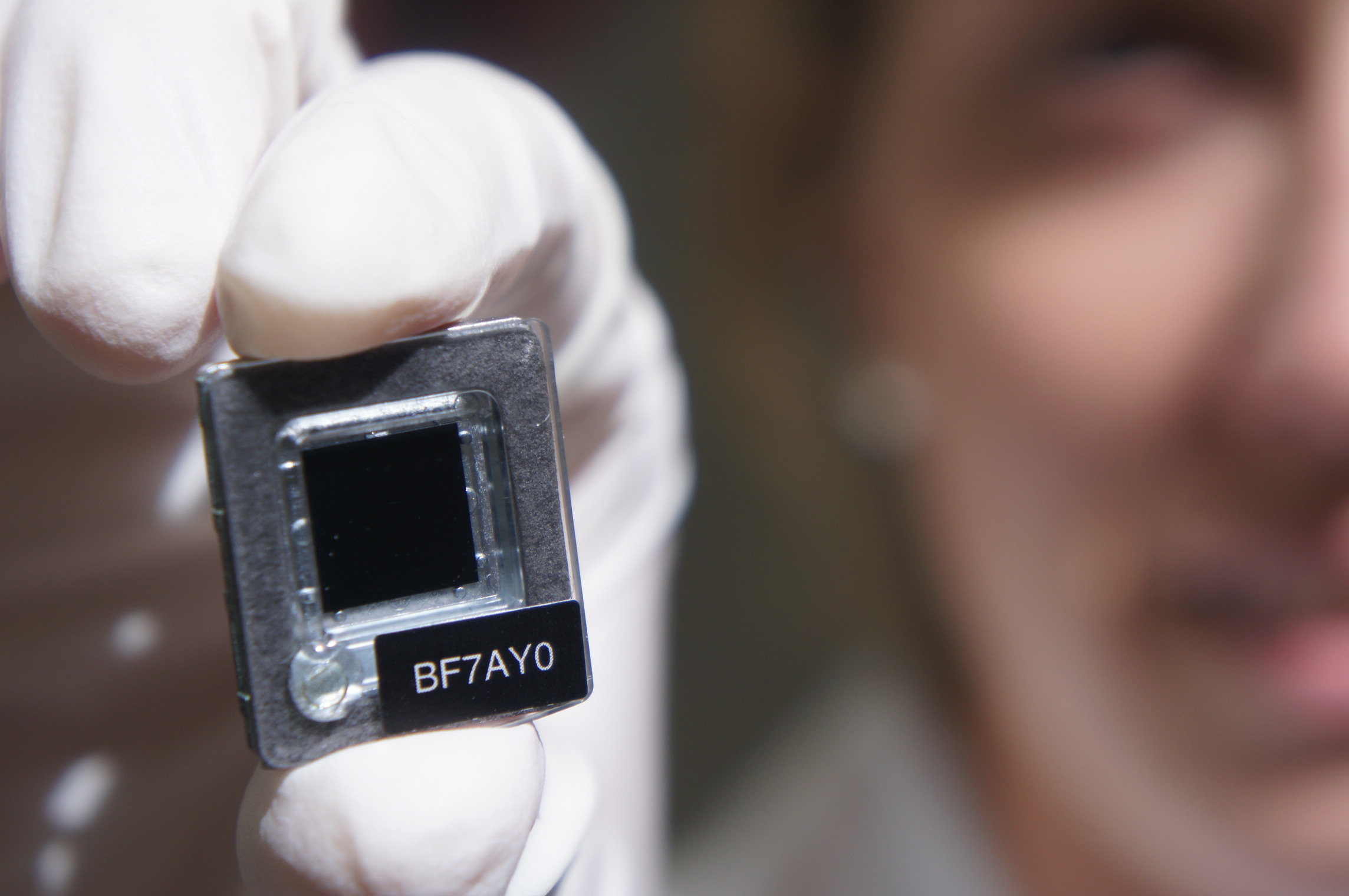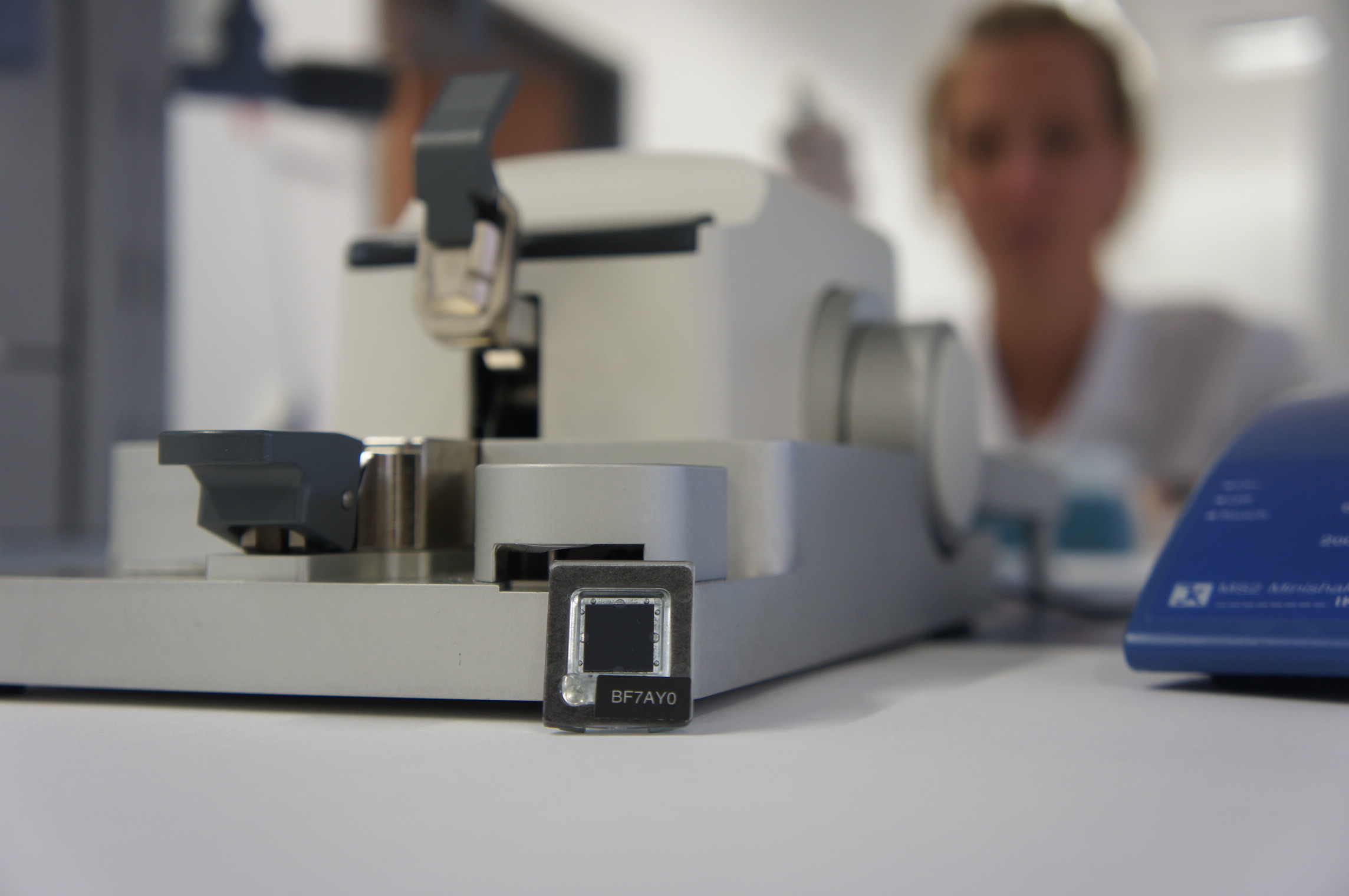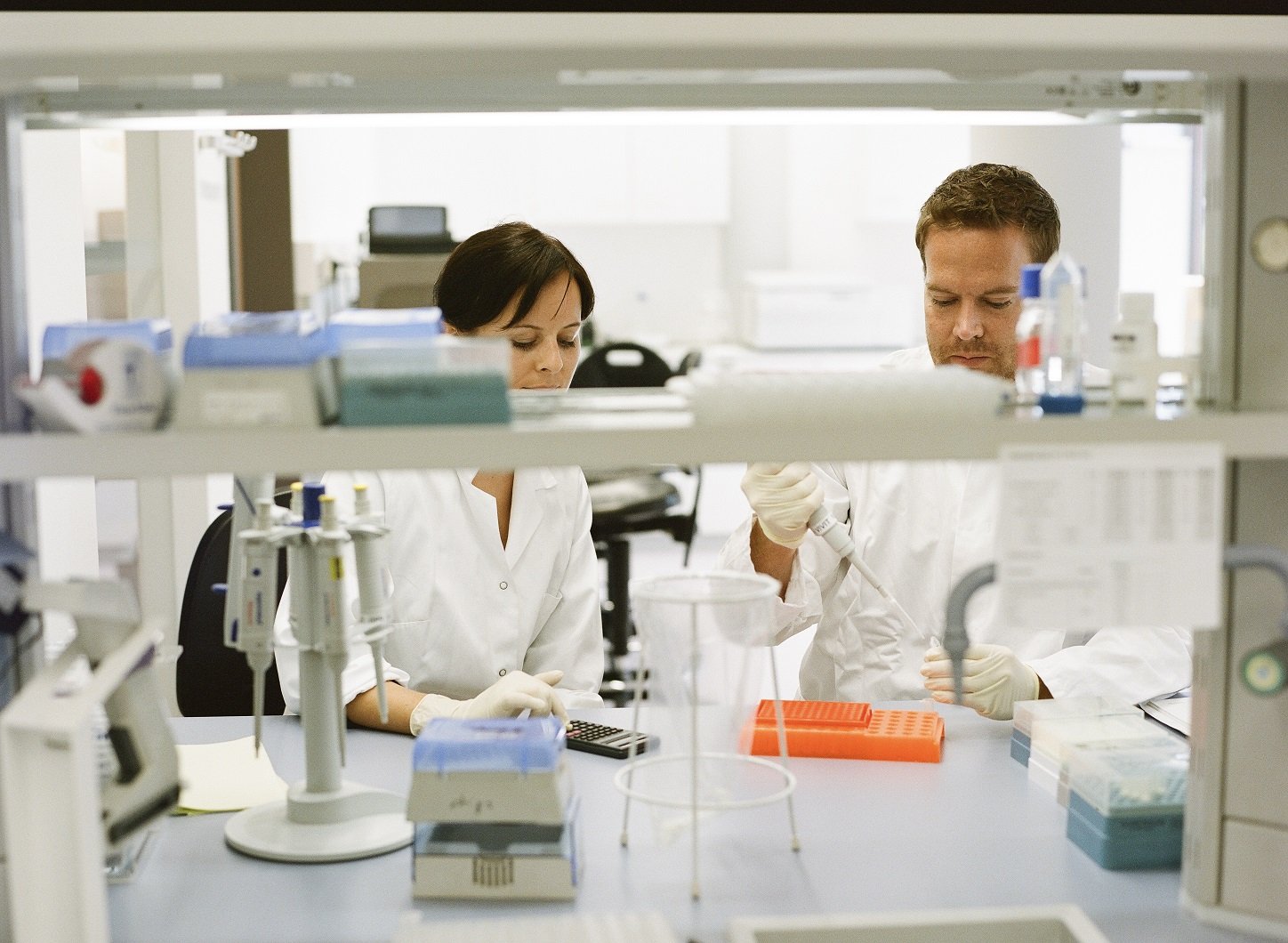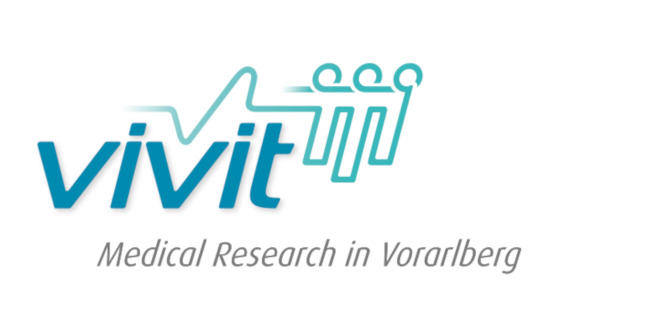Funded by:

27th September 2017
New EU-project for the improvement of cancer therapy in the Lake Constance region
Dornbirn/Ravensburg – The Vorarlberg Institute for Vascular Investigation and Treatment (VIVIT) initiated a cross-border cooperative project of clinics, oncology centres and laboratories in the region of river Rhine and Lake Constance under its leadership. The EU-funded project aims at establishing the use of blood samples as an alternative to conventional biopsies for targeted tumour therapy.
When weighting up therapeutic options, the genetic profile of a tumour plays a decisive role in that it holds information about the effectiveness of a medication. The standard practice to characterise said genetic profile involves tissues samples (biopsies) of the tumour. Latest technological advancements, however, allow the use of blood samples for the genetic analysis of the tumour. These samples are called liquid biopsies. Axel Mündlein, head of the VIVIT laboratory in Dornbirn, explains, “The underlying principle is that tumours release DNA fragments or even entire cells into the blood stream.”
The advantage of liquid biopsy over conventional tissue biopsies is that results can be generated even when, after histological analysis, there is not enough material left of the original tissue biopsy or when generating the latter bears risks. Moreover, drawing blood is far less invasive and less discomforting for the patient than the removal of a tissue biopsy.
Liquid biopsies have great potential, especially for the surveillance of cancer patients in follow-up care. “Tumours can change over time and can develop resistance against the original therapy.” , says Professor Thomas Decker from the Department of Oncology at the St. Elisabeth’s Clinic in Ravensburg.
The detection of tumour-specific gene alterations in blood, however, resembles a search for the proverbial needle in a haystack, since the vast portion of DNA in a liquid biopsy does not originate from the tumour but from healthy cells. “This is only possible by employing advanced methods of DNA-preparation and highly efficient analytical methods such as Next Generation Sequencing.”, explains Axel Mündlein.
The deployment of liquid biopsies for the analysis of tumours and their application to predict therapy responses is in its infancy in clinical practice and is currently restricted to clinical trials, apart from some exceptions. “The aim of our project is to introduce genetic analyses based on liquid biopsies into our region and to render them accessible in a routine clinical setting.”, said Axel Mündlein. The first phase of the project will include patients with metastasised breast, lung, or colon cancer. These plans will be implemented in cooperation with the State Hospital Feldkirch (LKHF), the Specialist Clinics Wangen, the Oncology Department of the St. Elisabeth’s Clinic in Ravensburg, the joint internal medicine practice Oettle and Mayer in Friedrichshafen, as well as the Institute of Pathology in Kaufbeuren Ravensburg and is funded by the European Union and the Interreg V-A Germany Austria Switzerland Liechtenstein (Alpenrhein Bodensee Hochrhein)- Cooperation programme for the European Union Funds' investments in 2014-2020.
(Press release from 27th September 2017; reprinting with indication of source permitted)
More information about the project: VIVIT Molecular Biology Laboratory Priv.-Doz. Dr. Axel Mündlein, Tel.: +43 5572 372 65 81 Fax +43 5572 372 65 84 e-mail: labor@vivit.at



The new international collaboration of clinics, oncology centres, and laboratories in the region around Lake of Constance and Rhine Valley set out to find new ways of personalised cancer treatment.
